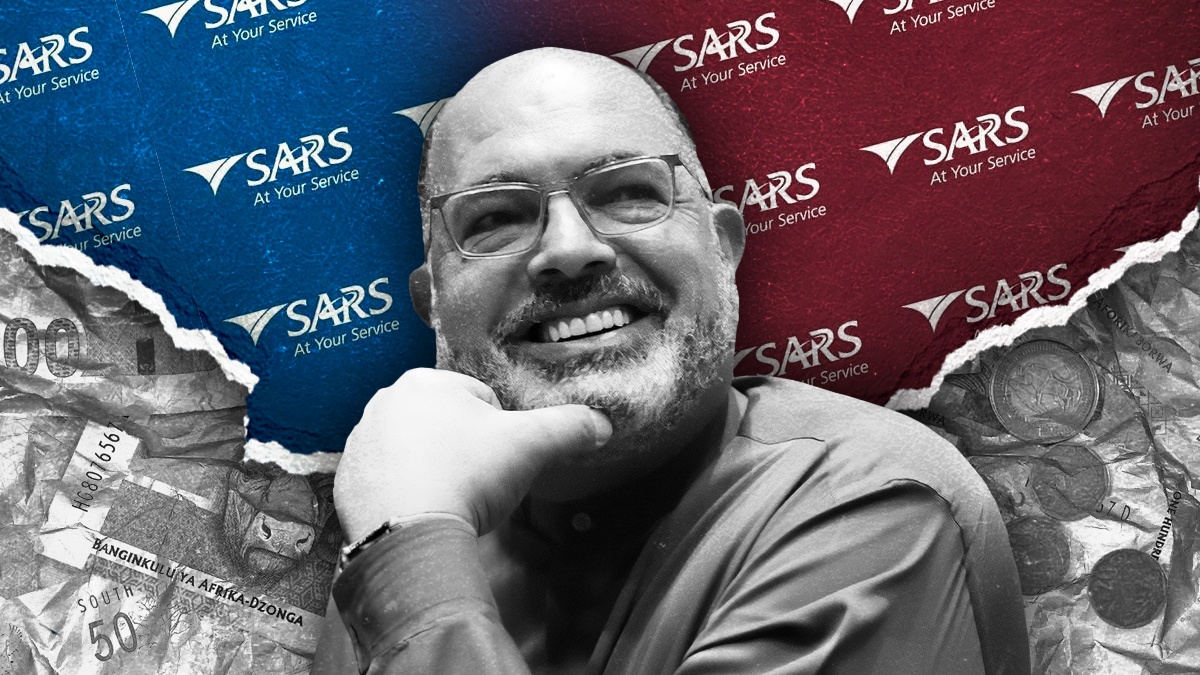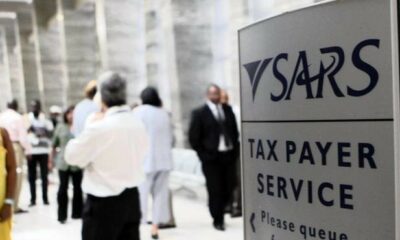Business
Edward Kieswetter Breaks Through R1 Trillion as SARS Reclaims Its Power

A tax agency South Africa fought hard to get back
Anyone who lived through the state capture era remembers the damage it left behind. Institutions that once worked like clockwork were stripped bare, and few were hit harder than the South African Revenue Service. Once admired across the continent, SARS became a weakened organisation with missing skills, broken systems, and public trust that had all but evaporated.
When Edward Kieswetter arrived in 2019, he walked into an agency that had been hollowed out. Billions in potential revenue were simply slipping through the cracks. By 2025, that story looks very different.
The comeback that brought in more than R1.1 trillion
According to SARS’s latest 2024 to 2025 annual report, the agency collected R304 billion in compliance revenue this year alone, a jump from R260.5 billion in 2023. Compliance revenue is the money SARS recovers when it goes after taxpayers and industries that sit outside the tax net. It is the money lost through evasion, criminal activity, undeclared income, and illicit trade.
Over the course of Kieswetter’s tenure, these efforts have added up to more than R1.14 trillion in additional collections for the country. It represents a remarkable financial turnaround and a return to the tough, data-driven enforcement SARS was once known for.
This surge did not happen accidentally. It happened because Kieswetter rebuilt what had been destroyed.
Rebuilding capacity after years of damage
During Tom Moyane’s leadership in the state capture era, SARS’s enforcement capacity was systematically dismantled. Specialist units were shut down, experienced staff were pushed out, and the once highly regarded risk capability was left ineffective.
Kieswetter’s first task was simple in theory but enormous in practice. He had to rebuild. That meant bringing back the specialist tax units that used to target organised crime, high-net-worth individuals, large businesses, and complex cross-border transactions. It meant creating new ones, too, such as a dedicated crypto unit.
He also pushed SARS into the digital era with bold adoption of machine learning tools, AI-supported assessments, and an automated filing process that now handles millions of returns seamlessly. These systems made it easy and inexpensive for compliant taxpayers to file, while making noncompliance difficult and expensive.
The numbers behind the turnaround
The end-of-term report shows which areas of compliance produced the biggest returns between 2020 and 2025.
Risk management brought in over R103 billion in the last financial year. Debt collection and outstanding returns added another R95 billion. Most striking is the jump in revenue from criminal and illicit activity, which nearly tripled between 2022 and 2024 and continued rising into 2025.
SARS has made it clear that illicit trade is no longer being ignored. Cigarettes, illegal imports, under-declared goods, criminal supply chains, and tax-dodging syndicates are now top targets.
Across all categories, the message is the same. South Africa can no longer raise taxes to fill holes. The only sustainable option is to close them.

Image 1: Business Tech
Why this matters for every household
South Africans feel the weight of the country’s fiscal pressure every day, from rising costs to shrinking public services. With limited room to introduce new taxes, SARS has been forced to look at the parts of the economy that operate in the shadows. Kieswetter himself said he believes between R500 billion and R800 billion remains hidden in these corners.
The success of compliance collection is not just technical. It affects whether hospitals get medicine, whether schools have books, and whether essential services remain afloat. The R1.14 trillion recovered to date represents money that would otherwise have been lost entirely.
A contract extended and a mission unfinished
Kieswetter’s contract was originally meant to end in April 2024. Instead, President Cyril Ramaphosa extended it to 2026. It was a clear sign that the country cannot afford to lose momentum now.
The SARS Commissioner has said repeatedly that the agency’s long-term goal is simple. Make compliance affordable and effortless for honest taxpayers, and make the cost of cheating so high that the illicit economy shrinks year by year.
South Africa still faces a long climb, but with a strengthened SARS and a record-breaking R1 trillion in additional revenue already secured, the climb no longer feels impossible.
Also read: Tshwane Moves Closer to Expropriating Abandoned Buildings as Safety Fears Grow
Follow Joburg ETC on Facebook, Twitter, TikT
For more News in Johannesburg, visit joburgetc.com
Source: Business Tech
Featured Image: Daily Investor



























